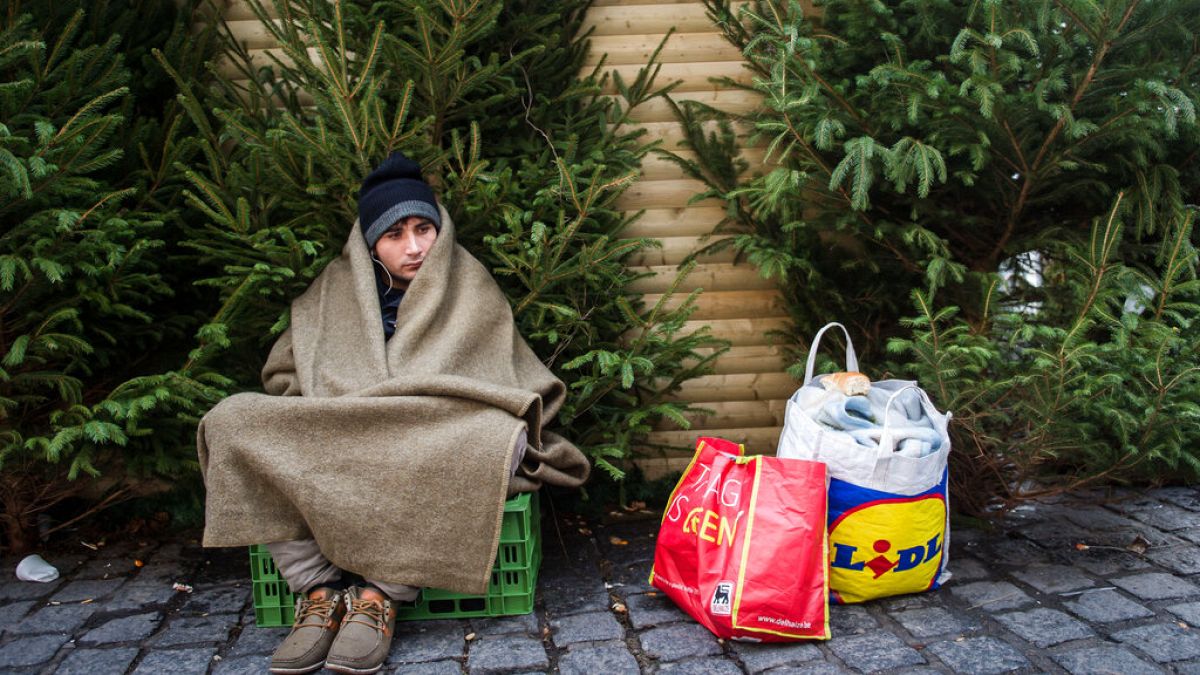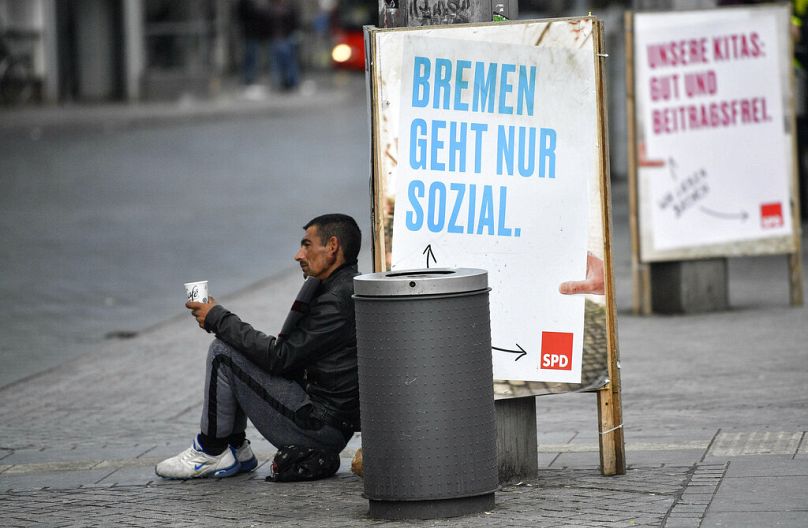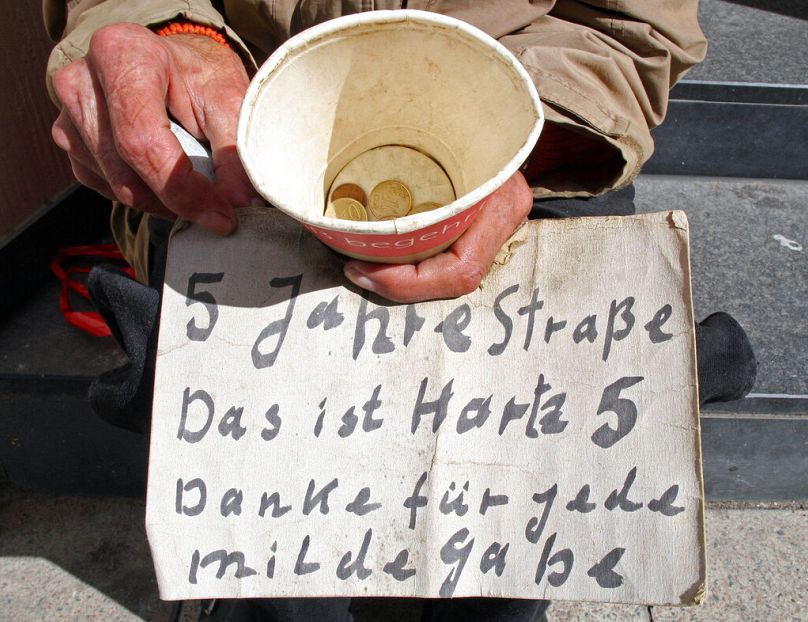Experts believe the government won't keep its promise to end homelessness in Berlin by 2030.
Rising living costs, scarcity of housing, and increased accommodation prices are hitting German families hard – but with Christmas on people's minds, organisations set up to help the homeless are struggling to bring in the donations they need.
The Arche organisation provides food supplies for impoverished families and support for children. When the Arche was founded, almost 30 years ago, there were 1.2 million children in financial poverty in Germany. Despite a decrease in births, child poverty has tripled to over 3 million.
Mother of four Antje Fürstenau told Euronews that she is worried about affording Christmas presents just as her rent increased this year. She visits the Arche nearly every day with her children during lunchtime.
"Currently, it's difficult for me. Two months ago, I received a cancer diagnosis, and I couldn't continue my job,” she said.
Fürstenau is also worried about increasing petrol prices, and wonders if it’s worth going to work, as she needs to drive to her job as a carer.
But breaking out of the poverty trap can be almost impossible.
Arche founder, Bernd Siggelkow, says “poverty is not only financial but also emotional.” He told Euronews that many of the people who the Arche supports are single mothers.
Children are at risk of becoming isolated when parents can’t afford to let their children participate in activities including going to the cinema with friends or classmates. Some are also bullied for being “’poor” and eventually give up, with little hope of becoming more than welfare recipients. Siggelkow says the government needs to invest more in these children to give them a future.
But poverty is also visible in the streets. This year the level of homeless people across Germany increased significantly, according to official figures.
The Cold Bus delivers homeless people to shelters and gives them warm food and sleeping bags.
The volunteers working for the organisation warn that the number of homeless who use wheelchairs are increasing, and there are only a couple of buses in the capital of Berlin that have capacity to transport those in need to somewhere warmer.
Volunteer Mathias Förster says the bus can work non-stop through the evening as temperatures plummet, and urged people not to ignore those on the streets.
Many of the overnight shelters are at maximum capacity within a few hours. “There are too few places in Berlin,” Förster told Euronews.
Government statistics say 57% of homeless people with German citizenship were forced onto the streets after terminations of flat contracts. Around 25% of those sleeping rough are women.
Former roof layer Steffen sleeps under a bridge in the east of Berlin. He said he has been harassed and that young people clap and throw fireworks at him as he tries to sleep. He added that his rucksack and belongings have also been stolen.
“I was a roofer for 31 years," he said. "I am 51. Horst (the man sleeping next to him) is 61. He was in the police for 20 years."
This week, food bank The Tafel packed over 10,000 bags for those in need over the Christmas season. But they say more needs be done by the government to help.
Experts believe the German government won't manage to keep its promise to end homelessness in Berlin by 2030.
If you wish to donate this Christmas, here are some organisations working in Germany:


